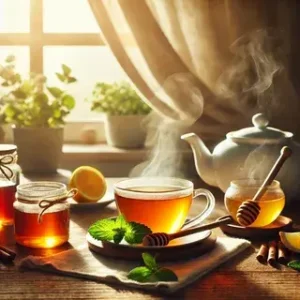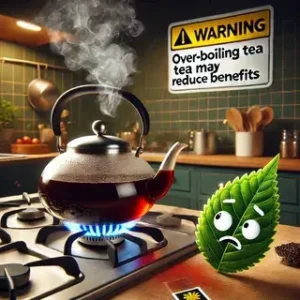What is white coffee? It is a unique type of lightly roasted coffee that looks like sand and offers a distinct malty or bready flavor. By roasting at only approximately 325°F, the beans’ taste is quite different from those of regular roasts. As a result, they can only be purchased pre-ground since they are extremely hard to grind in a regular home grinder.
The term “white coffee” in Britain usually means coffee that has some kind of cream or milk added to it. This is distinct from “black coffee” which has no dairy components at all. For this to happen, there has to be a steaming procedure whereby the steamed or frothed milk is incorporated or even cold milk is added depending on the sort of coffee one wishes to produce.
Additionally, specialized beverages such as latte or cappuccino can also come under this term but generally relate to using milk as part of producing a cup of this sort in the UK Some other nations use this word with various connotations such as when referring to coffee that has been brewed for a shorter amount of time consequently lighter color and different flavor altogether.
What is White Coffee
It stands out from other varieties thanks to its distinct light roast and taste character. But even though they come from the same place as regular coffee beans, they are distinguished by their unique roasting and processing methods. This kind has a mild nutty flavor and a smooth texture, in contrast to darker blends, which are often more bitter with heavier body and flavor characteristics. It also has a little greater caffeine density. We shall explore every facet of white coffee in this article, including its history, preparation methods, brewing methods, relationship to black coffee, etc.
1. Where Does White Coffee Come From?
Contrary to popular belief, white coffee isn’t associated with any specific origin or kind of coffee bean. The roasting process is really where the phrase “white coffee” originates. White coffee may be made with regular coffee beans, no matter where they are grown—in Ethiopia, Colombia, or another area. Nonetheless, the mild roast is what distinguishes white coffee.
History of White Coffee
Contrary to popular belief, white coffee isn’t associated with any specific origin or kind of coffee bean. The roasting process is really where the phrase “white coffee” originates. White coffee may be made with regular coffee beans, no matter where they are grown—in Ethiopia, Colombia, or another area. Nonetheless, the mild roast is what distinguishes white coffee.
2. How To Make White Coffee
The roasting procedure separates making white coffee from making ordinary coffee, but the techniques are very similar. The taste profile is far more nuanced as a consequence of the beans’ milder roast. The following is how to prepare white coffee at home:
Ingredients:
- Coffee beans, white (very lightly roasted)
- filtered water
- Coffee grinder (for pre-brewing coffee bean grinding)
- Brewing apparatus (such as an espresso machine, drip coffee maker, or French press)
Steps:
Grind the white coffee beans: Due to their shorter roasting times, white coffee beans are significantly tougher than ordinary beans. Make use of a top-notch grinder that can handle this density. Depending on the brewing technique you choose, grind to a medium-fine consistency.
Boil water: To prevent burning the beans’ delicate taste, bring the water to a temperature of around 200°F, which is slightly below boiling.
Brew: Using your chosen technique of brewing
Before pressing the ground beans in the French press, cover them with boiling water and let sit for four to five minutes.
Use white coffee grounds and proceed as directed by your machine to make drip coffee.
To make espresso, fill the portafilter with finely ground white coffee and draw the shot just like you would with regular espresso.
Savor: White coffee is great either black or with a dash of milk because of its smooth, nutty flavor and low bitterness.
3. How Do You Brew White Coffee Beans?
Because white coffee beans are firm and light roasted, brewing methods for them change slightly. To properly brew white coffee beans, you need to take into account the following:
Best Brewing Methods
| Method | Brewing Time | Grind Size | Notes |
|---|---|---|---|
| French Press | 4-5 minutes | Medium | Convenient and allows delicate flavors to come through. |
| Drip Coffee | Standard | Medium-Fine | Easy to use and lets subtle tastes shine through. |
| Espresso | 25-30 seconds | Fine | Smooth but powerful and focused at the same time. |
| AeroPress | 2-3 minutes | Fine | offers a concentrated, rich cup. |
Pro tip: White coffee beans are tougher, so to guarantee an equal grind, think about using a burr grinder. Because the lighter roast might have an impact on extraction timings, you might also need to slightly modify the brewing time.
4. White Coffee vs Black Coffee
When comparing white coffee to black coffee, the primary difference lies in the roast and flavor profile. Here’s how they stack up:
Roast Level
- White Coffee: 325°F to 325°F, mildly roasted. Because of the shorter roasting period, the beans are tougher and retain more moisture.
- Black coffee: The beans are roasted at significantly higher temperatures to provide a bolder, more bitter flavor. Roasting can range from medium to black roast.
Caffeine Content
- White Coffee: Because the beans are roasted for a shorter period, they retain more caffeine. White coffee might have up to 50% more caffeine per cup than dark roast.
- Black Coffee: Because dark roasts take longer to roast and partially break down their caffeine content, they have significantly less caffeine overall.
Flavor
- White coffee tastes smooth, somewhat sweet, and nutty. It is not as bitter as regular black coffee.
- Black coffee is Usually stronger and more bitter, particularly in darker roasts.
Nutritional Value
- Higher concentrations of chlorogenic acids, which are antioxidants that decrease with extended roasting durations, are present in white coffee.
- Because black coffee is roasted for a longer time, it still contains antioxidants, although in less amounts.
| Feature | White Coffee | Black Coffee |
|---|---|---|
| Roast Level | Light | Medium to Dark |
| Caffeine Content | Higher | Lower |
| Flavor Profile | Nutty, smooth, less bitter | Bold, robust, bitter |
| Antioxidant Levels | Higher | Lower |
5. Is White Coffee Healthier for You?
While there is considerable disagreement over the relative health advantages of white and black coffee, the following are some important ones to take into account:
1. Higher Antioxidant Levels:
Higher concentrations of the antioxidant chlorogenic acid, which has been connected to several health advantages including reduced inflammation and perhaps heart disease risk, are found in white coffee. The beans retain more of these healthy ingredients since they are roasted for a shorter amount of time.
2. More Caffeine:
White coffee provides a caffeine boost for those who seek it. White coffee is a great choice for people who need more energy because of the shorter roasting period, which maintains more caffeine.
3. Less Acidity:
Additionally, white coffee has a lower acidity than darker roasts, which is advantageous for people who have acid reflux or sensitive stomachs.
But keep in mind that white coffee is still coffee, and because of its greater caffeine concentration, moderation is the key to avoiding any potential negative effects like jitters, sleeplessness, or elevated heart rate.
6. White Coffee Taste and Flavor Profile
White coffee is beloved for its unique flavor, which is vastly different from regular coffee. Its taste can be described as:
- Nutty: Smoother than regular coffee, with a subtle, nutty flavor.
- Less Bitter: The beans don’t get as bitter as darker roasts since they are roasted for a shorter period at a lower temperature.
- Slightly Sweet: White coffee tastes good even without sugar or cream, and some people even sense a natural sweetness.
This makes white coffee a great option for those who typically find black coffee too bitter or intense.
7. Frequently Asked Questions
Q: Can you add milk to white coffee?
A: Yes, white coffee pairs well with milk or alternative creamers. Its light flavor allows for more versatility when it comes to customizing your cup.
Q: Does white coffee have more caffeine than espresso?
A: Yes, white coffee typically has more caffeine than espresso, but the actual amount depends on the brewing method and the ratio of beans to water.
Q: Can you use regular coffee beans to make white coffee?
A: No, white coffee requires specifically lightly roasted beans. Regular coffee beans, especially dark roast, won’t have the same flavor or caffeine content.
8. Conclusion
Cleared of all the special things, the coffee forecasting will use all different terms when it begins given that the years limit across October 2023 it will also be necessary to mention that in fact in this situation was born very popular meaning including memories owned white coffee.
White coffee usually tastes smoother, nuttier, and less bitter than dark roasts; it has more caffeine and balanced antioxidant properties which also makes it taste good for your health as well. For people who have been drinking coffee for years and even for those who want to try something new white chocolate is worth tasting. There are a lot of factors that make white coffee such a unique drink among people who prefer coffee drinks globally like how it gets roasted to its preparation method linearity at first then afterward we have little guidelines to ensure you get the best out of your cup of white chocolate.
(My review )
It seems like websites all over the planet are talking about white coffee recently. I was confused for a long time why people made a big deal over what I always thought was just a basic mix of coffee and milk. Well, but it symbolizes something that has never been done before. So if you have been asking “Is there something called white coffee?” then let’s go over this knowledge together!





You’ve been great to me. Thank you!
Your articles are extremely helpful to me. Please provide more information!
Thank you for providing me with these article examples. May I ask you a question?
yes you can
Thank you for your articles. They are very helpful to me. May I ask you a question?
Thank you for your articles. I find them very helpful. Could you help me with something?
Thank you for providing me with these article examples. May I ask you a question?
Great content! Super high-quality! Keep it up!
Please tell me more about your excellent articles
Good web site! I truly love how it is easy on my eyes and the data are well written. I am wondering how I could be notified whenever a new post has been made. I’ve subscribed to your RSS which must do the trick! Have a nice day!
The articles you write help me a lot and I like the topic
May I request more information on the subject? All of your articles are extremely useful to me. Thank you!
Thanks for posting. I really enjoyed reading it, especially because it addressed my problem. It helped me a lot and I hope it will help others too.
Youre so cool! I dont suppose Ive read something like this before. So good to find anyone with some unique ideas on this subject. realy thanks for starting this up. this website is something that’s needed on the web, somebody with somewhat originality. useful job for bringing something new to the internet!
you’re actually a excellent webmaster. The website loading speed is amazing. It kind of feels that you are doing any unique trick. In addition, The contents are masterwork. you’ve done a great process on this matter!
I have seen that car insurance companies know the motors which are prone to accidents as well as other risks. Additionally, these people know what types of cars are inclined to higher risk and the higher risk they have got the higher the particular premium fee. Understanding the straightforward basics with car insurance will assist you to choose the right form of insurance policy that may take care of your needs in case you happen to be involved in any accident. Appreciate your sharing your ideas on your own blog.